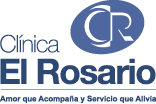Appointment Request EPS +57 (604) 3269200
Prepaid Medicine Appointments +57 (604) 3269299
Private Patient Appointments +57 (604) 3269179
Prepaid Medicine Appointments +57 (604) 3269299
Private Patient Appointments +57 (604) 3269179
This email address is being protected from spambots. You need JavaScript enabled to view it.
This email address is being protected from spambots. You need JavaScript enabled to view it.
Call Center: +57 (604) 4441555
This email address is being protected from spambots. You need JavaScript enabled to view it.
Call Center: +57 (604) 4441555
